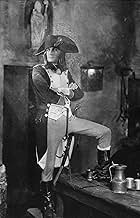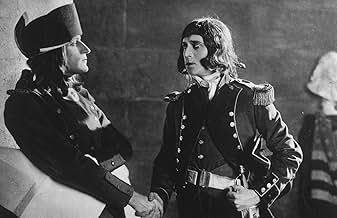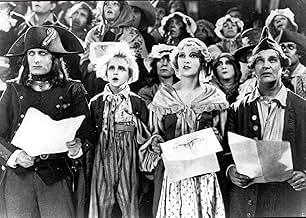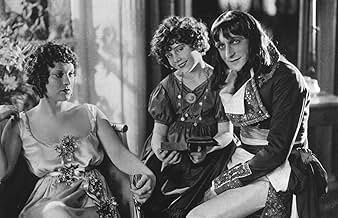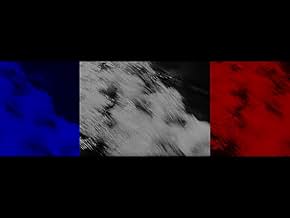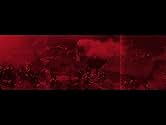Napoléon vu par Abel Gance
- 1927
- 5h 30min
CALIFICACIÓN DE IMDb
8.2/10
9.5 k
TU CALIFICACIÓN
Una película sobre la juventud del general francés y su carrera militar temprana.Una película sobre la juventud del general francés y su carrera militar temprana.Una película sobre la juventud del general francés y su carrera militar temprana.
- Premios
- 4 premios ganados en total
Nicolas Roudenko
- Napoléon Bonaparte enfant
- (as Vladimir Roudenko)
Max Maxudian
- Barras
- (as Maxudian)
- Dirección
- Guionista
- Todo el elenco y el equipo
- Producción, taquilla y más en IMDbPro
Opiniones destacadas
10fiddybop
The (more or less) full length version of Gance's NAPOLEON assembled by Kevin Brownlow over many years is an absolutely astounding achievement, both for Gance's inspired execution of a vision nearly too big for the screen, and Brownlow's dedication and perseverance, not to mention his superb reconstruction skills in bringing such a masterpiece back for the enjoyment of the world.
Well, not the whole world... Despite all this effort, the full restoration cannot be seen in the United States, on video or theatrically. It's a long story, but I just wanted potential and past viewers of this film to be aware of a few things:
-First of all, though video may be the only way to see this film in the U.S., keep in mind that home video can not even come close to providing the proper setting for such a gorgeous and epic film. The word "epic" has in fact never been so appropriate. So while I don't discourage people from seeing the video for lack of theatrical viewing opportunities, remember that the film was made on and meant to be seen on a grand scale.
-Secondly, the version currently available in the U.S. is not shown at the correct speed (24fps instead of the necessary 18/20fps). Also, it is missing footage. It is my understanding that in order to provide wider release possibilities in the U.S. upon the completion of the first major restoration in the '70s, the U.S. prints were edited somewhat to cut down on the admittedly long running time. This is also why the film is shown faster in the U.S., at "sound speed" or 24 frames per second. The newest restoration runs at 333 minutes, while the U.S. version is only 235.
The primary reason why the latest, glorious 2000 restoration of the film cannot be seen in the U.S. lies mainly with Francis Ford Coppola. Coppola controls the U.S. distribution rights, and allows only the U.S. version - with a score written by his father - to be shown. This is unlikely to change in the near future, so until then, deal with the substandard videotapes or plan your next European trip around one of the periodic English screenings of the film version - believe me, it's worth it!!
Well, not the whole world... Despite all this effort, the full restoration cannot be seen in the United States, on video or theatrically. It's a long story, but I just wanted potential and past viewers of this film to be aware of a few things:
-First of all, though video may be the only way to see this film in the U.S., keep in mind that home video can not even come close to providing the proper setting for such a gorgeous and epic film. The word "epic" has in fact never been so appropriate. So while I don't discourage people from seeing the video for lack of theatrical viewing opportunities, remember that the film was made on and meant to be seen on a grand scale.
-Secondly, the version currently available in the U.S. is not shown at the correct speed (24fps instead of the necessary 18/20fps). Also, it is missing footage. It is my understanding that in order to provide wider release possibilities in the U.S. upon the completion of the first major restoration in the '70s, the U.S. prints were edited somewhat to cut down on the admittedly long running time. This is also why the film is shown faster in the U.S., at "sound speed" or 24 frames per second. The newest restoration runs at 333 minutes, while the U.S. version is only 235.
The primary reason why the latest, glorious 2000 restoration of the film cannot be seen in the U.S. lies mainly with Francis Ford Coppola. Coppola controls the U.S. distribution rights, and allows only the U.S. version - with a score written by his father - to be shown. This is unlikely to change in the near future, so until then, deal with the substandard videotapes or plan your next European trip around one of the periodic English screenings of the film version - believe me, it's worth it!!
Four showings at the art deco palace Paramount Theatre in downtown Oakland on March 24, 25, 31 and April 1 will be a landmark for cinemaphiles. From the opening snowball fight to the closing triptych of the eagle's shadow leading the Grande Armee, there was so much to love. Abel Gance takes you on a journey that your mind gets to ride with distinct pleasures. Robespierre in the John Lennonesque sunglasses, the teaching of the Marsailles, the dinghy with an escaping Napoleon and the General Assembly simultaneously in stormy seas, are but a few. I can't imagine I'll ever watch this on DVD after seeing it like I did. I certainly could never consider a sped up 24pp version. I watched Metropolis once like that and it just wasn't the same film. In fact criminal. So weirdly, I recommend the film but can't recommend seeing it unless a better format is available. I'm going to buy Carl Davis' score and play the film in my head from memory, which includes the crowd at the Paramount rising to their feet at the close shouting Vive La France! Vive La Gance!
At the weekend i went to see Napoleon at the Royal Festival Hall in London. I am a relative newcomer to silent moves but too see a 5 and a half hour performance with the London Philarmonic Orchestra was incredible. Loved it, there seems to be some dispute with Coppola about the rights to this production, but if it is ever done again, it is something that any serious movie goer should make an attempt to see. And to prevent others from seeing this with an orchestra would be a travesty. The music by Carl Davies added another dimension to what was a fantastic film. It would appear that the work is a lifes work for Kevin Brownlow, he should be very proud of this acheivements.
Abel Gance's 'Napoleon' was premiered on April 7, 1927, at the Paris Opera House, the first movie to be accorded such an honor
It was been shown on a triple screen and to full orchestral accompaniment, running slightly under four hours
Impressive as it seems, it was conceived as the first of a six-part biography running many hours and tracing the life of Napoleon from childhood to the bitter end in St Helena Fortunately-for Abel Gance who directed and for us-the project was only completed to that moment where Napoleon enters Italy at the head of the French army, and the later and less pleasant aspects of his spectacular career were left unfilmed... The Little Corporal, after all, is a less controversial figure than the Emperor
Gance needed a figure as emblematic and powerful as 'Napoleon' to fulfill his dream of super cinema
'Napoleon' is a masterpiece of excess:
'Napoleon' is like one grand musical composition. It throbs with life
That was Gance the great filmmaker who thought that film could do everything and who said to Kevin Brownlow: 'For me, the cinema is not just pictures. It is something great, mysterious and sublime.' Brownlow is known now not only as an English filmmaker and film historian but also as a great restorer of silent films, notably Abel Gance's 'Napoleon.'
Impressive as it seems, it was conceived as the first of a six-part biography running many hours and tracing the life of Napoleon from childhood to the bitter end in St Helena Fortunately-for Abel Gance who directed and for us-the project was only completed to that moment where Napoleon enters Italy at the head of the French army, and the later and less pleasant aspects of his spectacular career were left unfilmed... The Little Corporal, after all, is a less controversial figure than the Emperor
Gance needed a figure as emblematic and powerful as 'Napoleon' to fulfill his dream of super cinema
'Napoleon' is a masterpiece of excess:
- The child Bonaparte keeps a pet eagle and wins a snow fight while at school in Brienne... In this sequence, the frame splits into nine subliminal images; as Napoleon watches his men entering Italy, the screen expands on each side to form a breathtaking panorama, then changes into three coordinated views of the scene
- The National Convention seems to sway and rock as Napoleon makes his escape from Corsica in a storm-tossed sailboat
- The Gallic of cabaret singers, Damia, leads French troops into battle personifying 'La Marseillaise'
'Napoleon' is like one grand musical composition. It throbs with life
That was Gance the great filmmaker who thought that film could do everything and who said to Kevin Brownlow: 'For me, the cinema is not just pictures. It is something great, mysterious and sublime.' Brownlow is known now not only as an English filmmaker and film historian but also as a great restorer of silent films, notably Abel Gance's 'Napoleon.'
Modern film-goers are used to explication, to having everything explained for them. The art of visual story-telling -- where images and action indicate the emotional state of characters, rather than have the actor tell you how angry or sad or excited they are -- has almost been lost. But "Napoleon" is a masterpiece of visual art. (Writer-director Abel Gance was honored at the Telluride film festival a few years ago for this film. Far too late, in my opinion.)
The film tells the life of Napoleon Bonaparte -- the Corsican who adopts France as his homeland, rises to supreme general of the French armies during the Revolution and eventually seizes the seat of government itself (twice!). It starts out with a lengthy (if perhaps mythological) examination of Napoleon's childhood in a Catholic school. Snowball fights between Napoleon and two future foes portend the future. Napoleon's friendship with a pet eagle foreshadows his role as emperor of France. But even though these scenes represent more artistic license than history, they are tremendously well-acted by the young Vladimir Roudenko (as young Napoleon). Among the many innovations are some relatively naturalistic acting by the members of the cast and some jaw-dropping editing and montage sequences (especially during the brawl during the snowball fight and the fight in the sleeping quarters). Such innovative use of editing probably wouldn't be seen for another 30 or 40 years!
After almost an hour of this three-hour epic, we're transported to the period of the adult Napoleon -- acted with gravitas and iciness by Albert Dieudonne (who is among the cast's taller actors, just as Napoleon was in reality fairly tall, too). The film dwells extensively on the formative period when Napoleon first arrives in Paris during the late Revolution, focusing heavily on how the chaos in the city stamped into Napoleon the authoritarianism and dictatorial leadership traits that would emerge later in life. This is perhaps the highlight of the film. The editing and visual images create a swirling, spinning, mind-blowing effect that is extremely effective.
The film then focuses on Napoleon's return to Corisca -- whose people held allegiances to Spain and Italy as well as France, and where Napoleon faced imprisonment due to his French leanings. For anyone interested in learning more about the life of Napoleon, this segment is pretty eye-opening. It's followed by a sequence at sea that's amazingly effective in conveying the power and terror of a storm at sea. For its time, this film contained some powerful ocean footage (watch for those amazing low-angle shots, and the ingenious intercutting of the "angry storm" of the French assembly and Napoleon's tiny skiff tossed about on the stormy seas).
The final hour and a half of the film depicts Napoleon's rise in the army and his tenure as emperor of France. This is perhaps the portion of the film that most viewers would think of as "the story of Napoleon." But perhaps one of the reasons why this film is so fascinating is that it delves deeply into the formative episodes in Napoleon's early life and gives as much importance to them as to his later actions on the battlefield in Italy, his tenure as emperor, and his subsequent exile, return, and exile. And the film does so without being heavy-handed, un-subtle or overly expositive.
A restored version of "Napoleon" is making the rounds in the US in cinemas and on television. It contains a new musical soundtrack by Carmine Coppola, which is fairly good (although at times repetitive and too loud). The film was restored and re-edited by Francis Ford Coppola's Zoetrope studio. Zoetrope added some tinting (the ocean scenes are all blue, the "angry mob" scenes are all red) that is interesting but perhaps not quite the "restoration" some viewers might have had in mind.
Watch "Napoleon." You'll be very surprised at how modern the film is. Compared to other silent films of the 1920s, with the undercranked action, overly emotive acting, fantastic plots and theatrical make-up and costumes, "Napoleon" is years ahead of its time. Silent films require concentration to watch. "Napoleon" will keep your interest.
The film tells the life of Napoleon Bonaparte -- the Corsican who adopts France as his homeland, rises to supreme general of the French armies during the Revolution and eventually seizes the seat of government itself (twice!). It starts out with a lengthy (if perhaps mythological) examination of Napoleon's childhood in a Catholic school. Snowball fights between Napoleon and two future foes portend the future. Napoleon's friendship with a pet eagle foreshadows his role as emperor of France. But even though these scenes represent more artistic license than history, they are tremendously well-acted by the young Vladimir Roudenko (as young Napoleon). Among the many innovations are some relatively naturalistic acting by the members of the cast and some jaw-dropping editing and montage sequences (especially during the brawl during the snowball fight and the fight in the sleeping quarters). Such innovative use of editing probably wouldn't be seen for another 30 or 40 years!
After almost an hour of this three-hour epic, we're transported to the period of the adult Napoleon -- acted with gravitas and iciness by Albert Dieudonne (who is among the cast's taller actors, just as Napoleon was in reality fairly tall, too). The film dwells extensively on the formative period when Napoleon first arrives in Paris during the late Revolution, focusing heavily on how the chaos in the city stamped into Napoleon the authoritarianism and dictatorial leadership traits that would emerge later in life. This is perhaps the highlight of the film. The editing and visual images create a swirling, spinning, mind-blowing effect that is extremely effective.
The film then focuses on Napoleon's return to Corisca -- whose people held allegiances to Spain and Italy as well as France, and where Napoleon faced imprisonment due to his French leanings. For anyone interested in learning more about the life of Napoleon, this segment is pretty eye-opening. It's followed by a sequence at sea that's amazingly effective in conveying the power and terror of a storm at sea. For its time, this film contained some powerful ocean footage (watch for those amazing low-angle shots, and the ingenious intercutting of the "angry storm" of the French assembly and Napoleon's tiny skiff tossed about on the stormy seas).
The final hour and a half of the film depicts Napoleon's rise in the army and his tenure as emperor of France. This is perhaps the portion of the film that most viewers would think of as "the story of Napoleon." But perhaps one of the reasons why this film is so fascinating is that it delves deeply into the formative episodes in Napoleon's early life and gives as much importance to them as to his later actions on the battlefield in Italy, his tenure as emperor, and his subsequent exile, return, and exile. And the film does so without being heavy-handed, un-subtle or overly expositive.
A restored version of "Napoleon" is making the rounds in the US in cinemas and on television. It contains a new musical soundtrack by Carmine Coppola, which is fairly good (although at times repetitive and too loud). The film was restored and re-edited by Francis Ford Coppola's Zoetrope studio. Zoetrope added some tinting (the ocean scenes are all blue, the "angry mob" scenes are all red) that is interesting but perhaps not quite the "restoration" some viewers might have had in mind.
Watch "Napoleon." You'll be very surprised at how modern the film is. Compared to other silent films of the 1920s, with the undercranked action, overly emotive acting, fantastic plots and theatrical make-up and costumes, "Napoleon" is years ahead of its time. Silent films require concentration to watch. "Napoleon" will keep your interest.
¿Sabías que…?
- TriviaAbel Gance remembered one scene that was removed by the censors--that of the execution of civilians by soldiers. The camera is used like a bullet, zooming towards one human target, then another, then another. The sequence is lost, although a still photograph does survive.
- ErroresOne of the Corsicans in the inn states "Our fatherland is Italy with the Duke of Savoy". The Duchy of Savoy had ceased to exist in 1713 (eighty years earlier), when the Duchy acquired the Kingdom of Sardinia and the Duke then bore the title of the King of Sardinia. Italy was a geographic place not a political entity at this time.
- Versiones alternativasThere are apparently at least 19 different versions of this film, starting with the original 6-hours cut (in a "triptych" format, requiring three projectors on three screens, called Polyvision). It has been shown in various formats and different running times, including a 1934 version re-edited by director Abel Gance and featuring an added soundtrack.
- ConexionesEdited into Napoléon Bonaparte (1935)
- Bandas sonorasThe Thrill of Being In Love (Love Theme of Napoleon and Josephine)
Music by Carmine Coppola
Lyrics by Italia Coppola (USA version)
UK version: score by Carl Davis (based largely on works by Beethoven)
Selecciones populares
Inicia sesión para calificar y agrega a la lista de videos para obtener recomendaciones personalizadas
- How long is Napoleon?Con tecnología de Alexa
Detalles
Taquilla
- Presupuesto
- FRF 20,000,000 (estimado)
- Total a nivel mundial
- USD 39,448
- Tiempo de ejecución5 horas 30 minutos
- Color
- Mezcla de sonido
- Relación de aspecto
- 1.33 : 1
Contribuir a esta página
Sugiere una edición o agrega el contenido que falta


